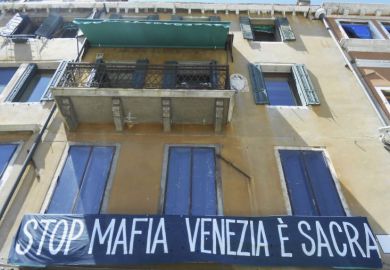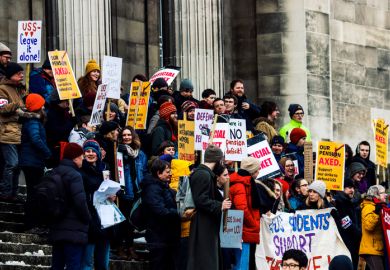Eight members of staff including the rector have been suspended from an Italian university in an investigation into supposedly rigged recruitment rounds.
Police investigating alleged misconduct at the Mediterranean University of Reggio Calabria, alleged to have occurred between 2014 and 2020, have dozens of suspects, local media reported.
The probe was launched after a researcher who said that she had been told to “wait her turn” for advancement complained to the authorities, according to the newspaper Il Fatto Quotidiano.
Friends of officials and the children of prominent local politicians are alleged to have benefited from the wrongdoing.
The rector, Santo Marcello Zimbone, has been suspended for 10 months, while the vice-rector, Pasquale Catanoso, a former rector, has been suspended for 12 months. Four lecturers and two other university employees were placed on leave for between two and six months.
The investigation was also reported to cover alleged misuse of university credit cards and funds.
In a statement, Giuseppe Zimbalatti, the university’s director general, said that teaching and research would continue as normal.
“The entire academic community places full trust in the work of the judiciary and the police who are conducting the investigation activities, to which it is providing and will provide the best possible cooperation,” he said.
Speaking generally, Emanuele Millemaci, a professor in economics at the University of Messina, said corruption could be accelerating brain drain from the Italian provinces. His analysis of mobility data suggests corruption exerts both push and pull effects on young academics.
“Where corruption is higher, the benefit of studying in terms of increased employability and earnings is lower,” he said, adding that corruption was self-reinforcing and more severe in Italy’s less developed regions.
Register to continue
Why register?
- Registration is free and only takes a moment
- Once registered, you can read 3 articles a month
- Sign up for our newsletter
Subscribe
Or subscribe for unlimited access to:
- Unlimited access to news, views, insights & reviews
- Digital editions
- Digital access to THE’s university and college rankings analysis
Already registered or a current subscriber?








